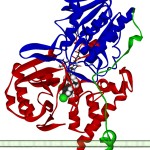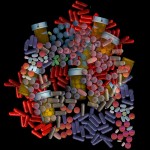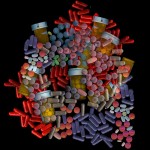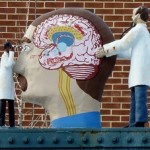When it’s time to get help for depression, most people turn to their primary care doctors and receive prescriptions for medication as the first-line treatment. A medical approach rooted in neurobiological research has become much more common than a psychological one that emphasizes psychotherapy.
That’s quite a change for someone like me who started getting psychiatric treatment when therapy was the norm and medication an emergency response. The change has brought with it a lot of controversy, and that can make it hard to know which type of treatment to rely on.
The posts in this section describe several aspects of current medical and psychiatric treatment from the perspective of someone who’s been through it.
Depression Diagnosis – 2: What Does It Mean to You?
Once you have a depression diagnosis, what does it mean to you? I’ve heard a lot of reactions, ranging from a feeling of comfort to dismay to a shrug of the shoulders.
A diagnosis is simply a name given to a set of symptoms, but it’s usually wrapped inside a number of messages, whether spoken or implied. Your response could depend on a specific message that’s delivered with the diagnosis. Given the authority of psychiatrists and other physicians, it’s easy to confuse the two.
Taking Emsam: A Different Kind of Antidepressant
Since I’ve written several posts on my growing worries about antidepressants, I thought I’d tell you about the one I’m taking now. Emsam has worked for me longer than any other, and the dietary restrictions it requires have been a small price to pay. Among antidepressants, the MAOI class has been relegated to 3rd or […]
Long-Term Antidepressant Treatment: A Strategy for Recovery or More Depression?
The more I get into the research on antidepressants, the more questions I have. In the last post, I raised issues about the endless search for the right medication; the discouraging record of relapse after becoming symptom-free; and the puzzling primacy of antidepressant treatment for an illness with complex causes that go way beyond biology.
Those questions are only the starters. I have even greater concern about long-term antidepressant treatment. Most psychiatrists consider it necessary for severe, recurrent illness, but others – apparently a small minority – are speaking out about adverse effects of using these drugs for prolonged periods.
3 Questions about Antidepressants
If you’re depressed, you will get a prescription for an antidepressant, sooner or later. In fact, medication is likely to be the first treatment you receive, perhaps the only one. Most people are fine with that. They want to feel better fast, and medication seems like the best route. Primary care physicians and psychiatrists prescribe […]
What Doctors Do When Depression is a Pain
I’ve had my share of problems with pain as well as with depression, but it never occurred to me to link the two until recently. Apparently, that’s true for most people with major depression, especially if physical pain is the first sign of the illness. They know they’re in pain, and depression is the last […]
The Draft Revisions for DSM-5: Dimensional Assessment
Like many, I’ve been worried that the revision of Diagnostic and Statistical Manual of Mental Disorders, the source for all our diagnoses, could lead to what’s been called the medicalization of normality. But there are even more fundamental problems inherent in the classification system itself. It slots you into a fixed category based on a […]
What’s in a (DSM Diagnostic) Name?
When I started getting a diagnosis of “depression” years ago, I found myself assuming that this was the name for a permanent condition rather than one dimension in the changing nature of an unfolding life. Later, the term became more formalized as “major depressive disorder recurrent non-psychotic” under the DSM-IV classification system. In a way, […]






